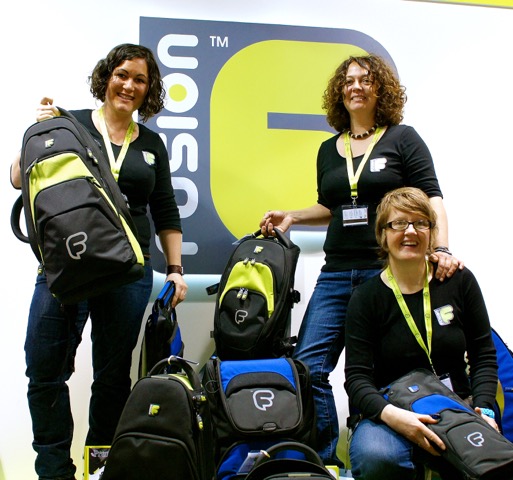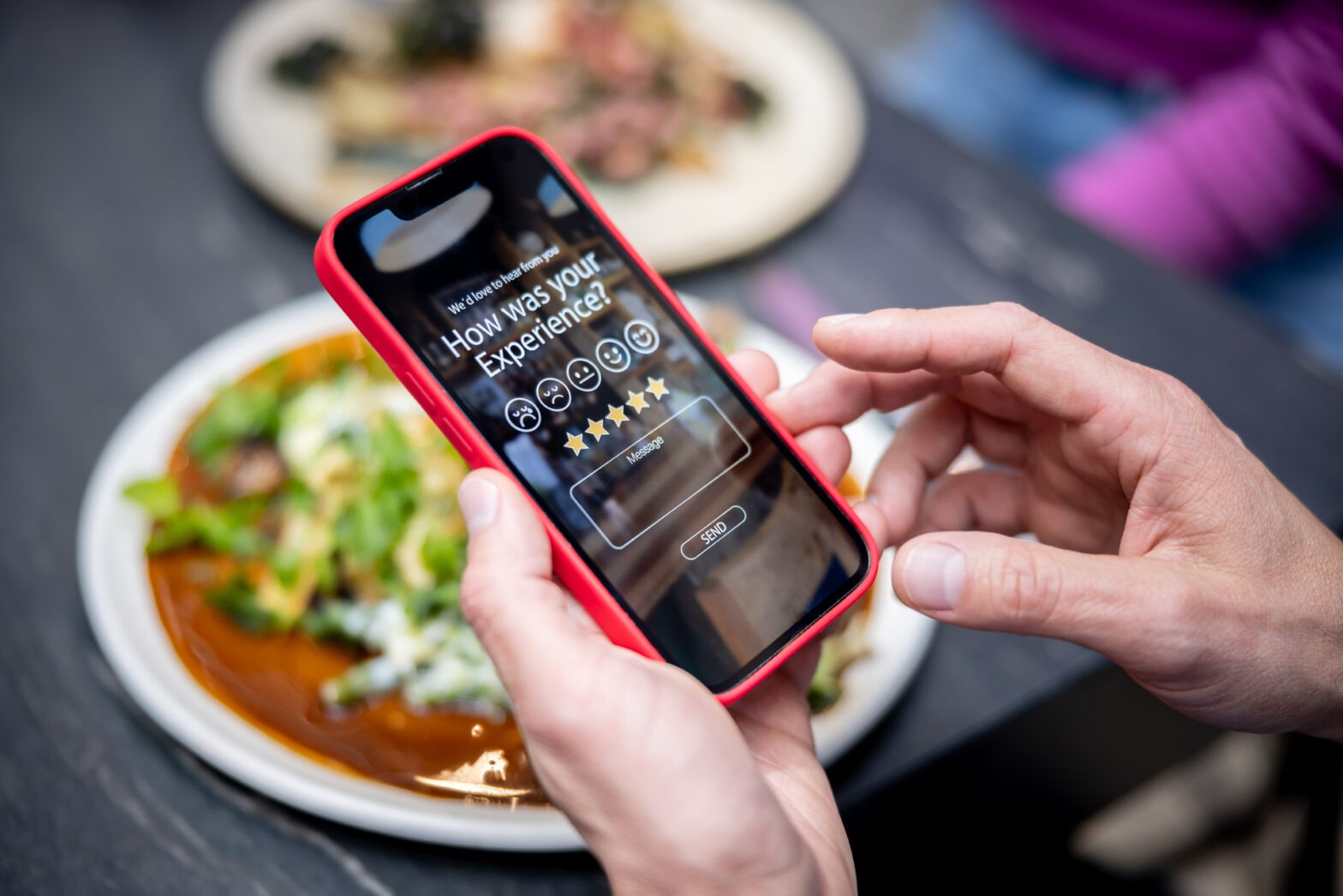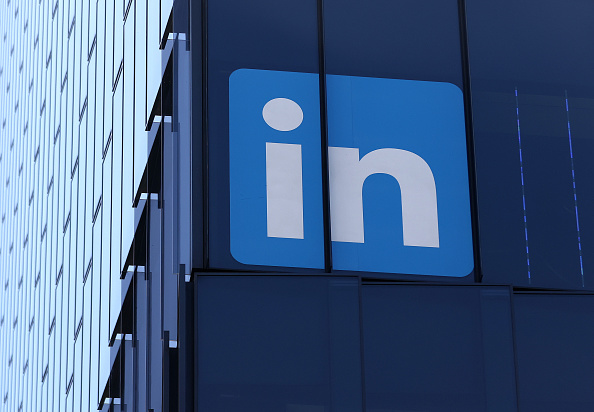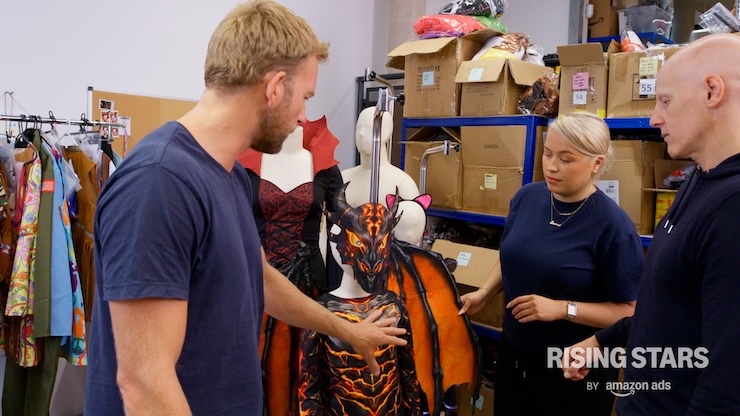Fusion Bags sells innovative musical instrument bags for musicians on the move. The company is based in West Yorkshire and has seven members of staff. The business was formed in 2008 by four friends. Here, co-founder Nicole Szekeres discusses how the company approached the challenge of marketing in the early stages.
What were your earliest marketing efforts like? Please provide specific examples of what techniques you used on a budget.
Our marketing efforts started early: before we had any products to show potential customers. After initial market research, we visited the London International Music Show where – despite having no samples – we approached potential distributors who we thought could be interested in selling our innovative new gig bags.
This paid off: we met a German distributor who went on to place their first order of Fusion bags, worth about £48,000.
A marketing effort is not always what it seems, sometimes it’s booking a train ticket to visit a show and speak to potential clients.
Our next marketing effort was to exhibit at a trade show ourselves. We booked a small booth at the Music China Show in Shanghai to reach an international audience.
This was a larger investment than a train ticket from Leeds to London, but the potential ROI was much higher too. After all, we only needed one new distributor order to recoup our costs. It was the experience of a lifetime: we launched our business to the music industry and the response was overwhelmingly positive. We returned, overjoyed, to the UK with orders from distributors from multiple continents.
The interest we got at the trade show didn’t just happen. We had prepared meticulously, and had sent letters (not e-mails!) to potential distributors worldwide.
Our letters contained personal invitations to meet at our booth at the Music China show. Each was hand-signed and contained a rubber keyring with our logo and website address, plus a brochure.
This was a low cost but highly effective marketing method. Some distributors made an appointment to meet at the show, some contacted us years later to show interest in buying our gig bags but all of them mentioned our letter with the rubber keyring. The keyring helped our letters stand out from the piles of mail that they would have received.
What worked? What didn’t?
In the early years, trade shows and exhibitions worked well but we also made bad marketing choices. When we launched our business, our aim was to make Fusion look like a professional, well established company so customers would feel confident about us.
To achieve this, we hired an advertising agency who charged us around £16,000 for a website and to photograph our products. This was a huge investment at the time and we soon realised that what they offered us was worth only a fraction of what we invested. We lacked experience and confidence but learned that some things are best done in-house and that expensive projects need to be carefully project managed to avoid flushing money down the drain.
What was the turning point in term of exposure for your company?
The turning point was the third year of trading. Exhibitions helped us to be recognised, but the energy and passion we had for our products turned each of us into marketing machines, constantly thinking of ways to promote our products on a shoestring. One idea was make films of our bags available on our website.
Videos explaining all the features of our bags soon became a sales tool for distributors and retailers – and were perfect to reach musicians worldwide. This was when we realised that we should start selling direct to consumers as well as to trade and distributors. All videos were filmed and edited in-house.
In 2014 we launched our online store which transformed our business. Finally, we could reap the benefits of our marketing efforts ourselves and nurture happy customers, many of whom turned into brand ambassadors.
What marketing do you do now?
We still deal with distributors and trade buyers but our fastest growing sector is consumer sales. Most of our marketing budget is spent promoting the website. PPC, SEO, email and social media marketing are at the heart of our efforts. The benefit of digital marketing is that it’s much easier to measure its effectiveness.
Customer enquiries are dealt with just in the early days when we got excited receiving our first emails. Each customer receive a friendly response; we always try to be helpful and many enquiries convert into sales. In return we receive raving reviews on our products and customer service which helps promote the brand.
What advice do you have for other company owners on the marketing challenge?
Be passionate about your product or service, treat each customer with respect and offer the best customer service possible. Happy customers will write positive reviews; some will become brand ambassadors, recommending your products and services. This is the cheapest way to create a marketing machine that doesn’t cost you anything other than time and good manners.
Measure your marketing efforts, especially if you are working on a shoestring budget. Don’t waste money: just because your competitors promote their business in a certain way, doesn’t mean that this works for you. Do more of what works, stop what doesn’t work.
Contact potential prospects, speak to them personally if you can and find out what they want. They might just be looking for what you can offer.
Educate yourself. Try out new things but never forget to measure your successes.
Any general opinions of the marketing scene?
Marketing has changed so much in the nine years since we founded Fusion and is likely to change even more. It’s good that companies have become a lot more transparent thanks to internet reviews and ratings. An unhappy customer can air their frustration online and happy customers can rave about their experiences by recommending products and companies.
Good customer service has always been important but with online reviews every customer experience is under a magnifying glass as potentially the whole world is watching.
Not all customer transactions result in 5-star reviews, some customers will not be satisfied and the challenge for businesses is now, more than ever before, to think in solutions and improve processes that might cause dissatisfaction.
Good customer service is our number one marketing priority and has been since day one. It is vital for us to maintain this quality as enquiries increase through other marketing activities.
Nicole Szekeres is co-founder of Fusion Bags.





